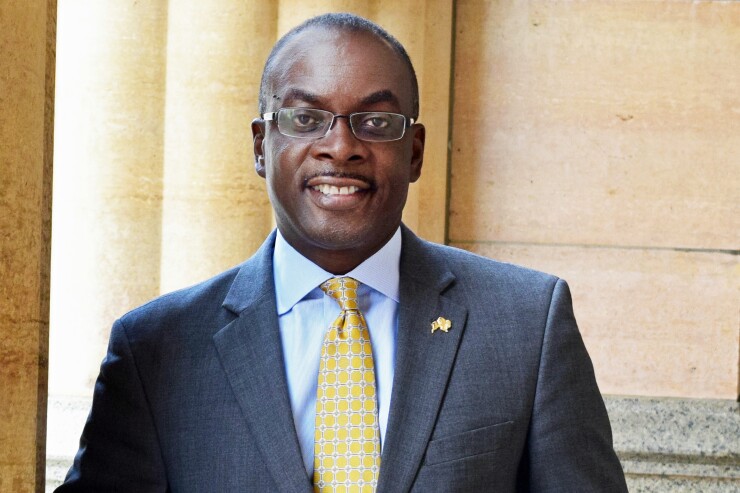Buffalo's mayor says he remains focused on the city's budget and economy after the FBI launched an investigation of a city agency.
FBI agents spent more than eight hours Wednesday conducting a “court authorized search warrant” at the Buffalo Urban Renewal Agency offices on the third floor of City Hall. An FBI spokesperson did not reveal a reason for the investigation that featured agents from Housing and Urban Development’s Office of the Inspector General and the IRS Criminal Investigation division. No arrests or charges were made Wednesday.

Mayor Byron Brown stressed Thursday that the BURA is a separate entity from city government even though it is located within City Hall. He said the investigation will not in any way affect the city’s efforts to achieve structural balance with its budget during the 2020 fiscal year after missing revenue targets from 2017 to 2019.
“We are going to stay focused on continuing our efforts to build Buffalo,” Brown, who was first elected mayor in 2005, said in a phone interview. “Buffalo’s fiscal and economic outlooks continue to be strong and are rising.”
The BURA is described
On Sept. 20, Fitch Ratings
Janney Capital Markets municipal analyst Alan Schankel said it will be difficult to project whether will be an impact on Buffalo’s municipal finances or credit quality until specific information about the FBI investigation is ascertained. He noted though that federal probes do get the market’s attention when evaluating credits.
“A federal investigation of a city or state raises caution flags for bond analysts and other municipal market players,” Schankel said. “Even if finances are not directly impacted, caution is warranted, as the underlying issues that prompted the investigation may reflect poorly on municipal leadership and management.”
Brown said the city recorded a $1 million surplus for the just finalized 2019 budget year and that the 2020 spending plan is structurally balanced without drawing on any reserves. He noted said the city is working toward adding revenue through the sale of capital assets along with creating recurring operational savings from improved efficiencies such as consolidating Buffalo’s police and fire headquarters into a new facility. The city is also getting a financial boost from a 7% increase in sales tax revenues since the 2020 fiscal year began July 1, according to Brown.
Matt Fabian, a partner at Municipal Market Analytics, said FBI investigations typically do not negatively impact credit conditions of large bond issuers like Buffalo, but can make a tangible difference for smaller municipalities experiencing fiscal stress. He noted that risks from federal search warrants tend to stem from the potential of certain discoveries that may arise from bond proceeds or financial statements.
“Buffalo has had strong credit improvements over the last several years, so it is in a much better place than other small credit-challenged cities," Fabian said. “This isn’t likely to be material credit risk for the city."
Buffalo’s bonds were a notch above junk in 2003 after Moody’s downgraded the city to Baa3. A state fiscal control board created by former New York Gov. George Pataki helped steer improved ratings with three upgrades between 2012 and 2016. After achieving predetermined benchmarks, the Buffalo Fiscal Stability Authority moved into an advisory role in 2012.





